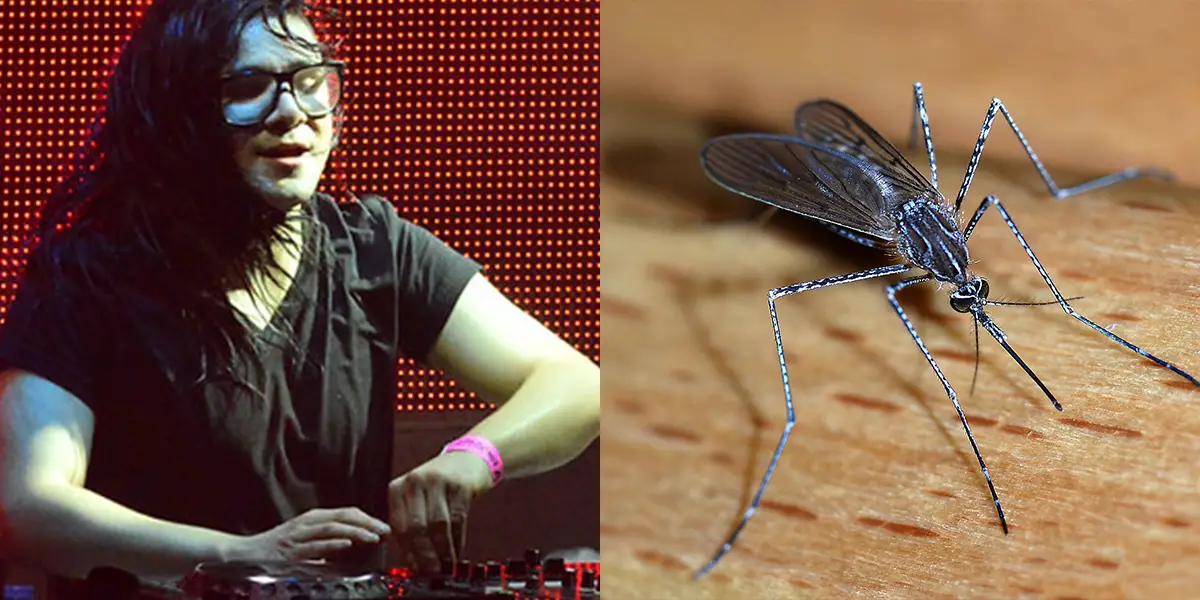Skrillex’s Music Can Be Used As Mosquito Repellent, According To Scientists
Tags: opinion

According to a strange study recently published in the Acta Tropica journal, certain types of electronic music can actually work as a mosquito repellent and even discourages them from mating. Making the results of the study even more bizarre is the fact that the researchers chose one specific song in their experiments, the hit Skrillex track “Scary Monsters and Nice Sprites.”
In fact, the name of the study is “The electronic song “Scary Monsters and Nice Sprites” reduces host attack and mating success in the dengue vector Aedes aegypti.”
According to the abstract of the study:
Sound and its reception are crucial for reproduction, survival, and population maintenance of many animals. In insects, low-frequency vibrations facilitate sexual interactions, whereas noise disrupts the perception of signals from conspecifics and hosts. Despite evidence that mosquitoes respond to sound frequencies beyond fundamental ranges, including songs, and that males and females need to struggle to harmonize their flight tones, the behavioral impacts of music as control targets remain unexplored.
In the experiment, researchers observed two groups of mosquitos in different environments. One group was in a calm and silent setting, and the other group was placed next to a speaker that was blasting Skrillex.
The mosquitos used in the experiment were Aedes aegypti, which are known to carry yellow fever and other harmful diseases. Researchers noted that the group of mosquitos near the music sucked less blood from hosts and did not mate as much as the mosquitos in the control group.
The study continued:
Discrepancies in visitation, blood feeding, and copulation patterns were compared between environments with and without music. Ae. aegypti females maintained in the music-off environment initiated host visits earlier than those in the music-on environment. They visited the host significantly less often in the music-on than the music-off condition. Females exposed to music attacked hosts much later than their non-exposed peers. The occurrence of blood feeding activity was lower when music was being played. Adults exposed to music copulated far less often than their counterparts kept in an environment where there was no music.
It is not exactly clear why this particular song was chosen, although the song is popular for its heavy bass. The level of bass could be a significant factor in the results of the experiment.
The Study Concluded:
In addition to providing insight into the auditory sensitivity of Ae. aegypti to sound, our results indicated the vulnerability of its key vectorial capacity traits to electronic music. The observation that such music can delay host attack, reduce blood feeding, and disrupt mating provides new avenues for the development of music-based personal protective and control measures against Aedes-borne diseases.
While this experiment seems silly, it demonstrates how sound waves can be used to keep mosquitos at bay and prevent the spread of disease. This might also mean that you can leave the bug spray at home the next time you are out at a music festival, but you might not want to rely entirely on the music as bug repellant, because only one song has officially been shown to keep them away. Unless you want to keep that same track on repeat all weekend, which is something that even the most hardcore Skrillex fans would tire of after a while.
IMAGE CREDIT1: Flickr
IMAGE CREDIT2: Wikipedia
Leave Comment: